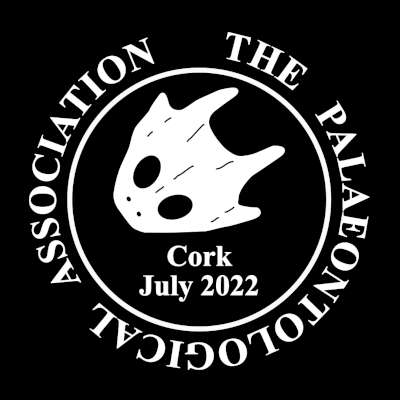Symposium
Before the main meeting, there will be a special thematic symposium on Wednesday 20th of July from 13.30 – 17.30 “Chemical fossils”. There will be talks from six international invited speakers addressing a broad range of topics spanning the geochemical study of fossils in the broadest sense. The talks will highlight current and emerging applications of biomarkers, isotopes, palaeoproteomics, rare earth elements, electron dispersive spectroscopy, X-ray diffraction, X-ray absorption near edge spectroscopy and vibrational spectroscopy, in the study of various fossil groups.
Speakers include Mike Buckley (The University of Manchester), Farid Saleh (Yunnan University), Christine Strullu-Derrien (Natural History Museum London), Paul Ullmann (Rowan University), Vivi Vajda (Swedish Museum of Natural History) and Jessica Whiteside (University of Southampton). A full list of titles will be posted here in due course. The full schedule is:
| 12.50 - 13.00 | Welcome address |
|---|---|
| 13.00 - 13.40 | Jessica Whiteside: Ocean deoxygenation and acidification at the end-Triassic extinction the one-two punch of elevated CO2 |
| 13.40 - 14.20 | Paul Ullmann: Braving the elements: taphonomic and diagenetic pathways to protein preservation |
| 14.20 - 15.00 | Christine Strullu-Derrien: Illuminating the 3D ultrastructure and chemical composition of the earliest plants and fungi |
| 15.00 - 15.45 | Tea/coffee break (Devere Hall, Áras na Mac Léinn) |
| 15.45 - 16.25 | Vivi Vajda: Biomolecular and structural analyses of fossil plants - tools for tracing survival strategies during mass extinctions |
| 16.25- 17.05 | Mike Buckley: Authenticating ancient proteins: exploring the phylogenetic potential of proteins and measures of their endogeneity |
| 17.05 - 17.45 | Farid Saleh: Chemical investigations resolve enigmatic features within Burgess Shale-type fossils |
Annual Address
The Annual Address will be given on Thursday 21st July at 16.00 by Prof. Daniela Schmidt of the University of Bristol, who will speak about her research on past records of climate change and implications for assessment of risks of future climate change in a talk titled: What - if anything - can palaeontology contribute to understanding our climate crisis.
Abstract: The Intergovernmental Panel for Climate Change in the 6th Assessment stated that historical and palaeontological records show that climatic variability has high potential to affect biodiversity and human society and that “… global biodiversity crises [are] often triggered by rapid warming”. Often these records of change occur over millennia and are only studied regionally or at limited taxonomic levels in incomplete records. This is raising the question what the contribution of the geological record can be to answering questions on impacts and risks of climate change on natural systems. We draw on the fantastic records in our archives and museums around the world, but these have gaps that are both geographic and temporal. Most recently, the climate crisis is not seen in isolation any more but strongly coupled to the biodiversity crisis. In this presentation I will draw on examples of links between environmental change and biotic response in the fossil record, and highlight the power of our methodologies working with challenging records and our experience in combining climate and biological records. I will argue that, while we cannot say much about the risks of climate change in the coming decades, the fossil record has fundamental contributions to make via the analysis of ecosystem resilience and responses.

